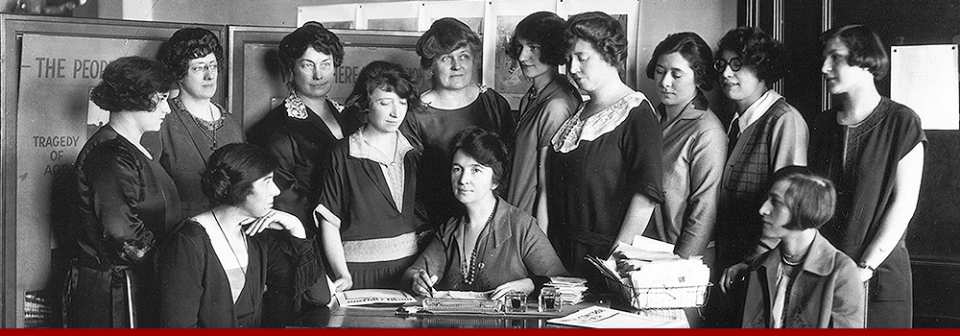 In celebration of Hispanic Heritage Month (Sept. 15-Oct.15), we dug into the project’s research files to tell the story of birth control following the Mexican Revolution of 1910-1920.
In celebration of Hispanic Heritage Month (Sept. 15-Oct.15), we dug into the project’s research files to tell the story of birth control following the Mexican Revolution of 1910-1920.
In the state of Yucatan, the Socialist governor, Felipe Puerto Carrillo (1872-1924) initiated a land redistribution project that the Chicago Tribune called: “taking lands from the big haciendas and giving them back to Indians. These lands were formerly held by about 800 owners, mostly Spaniards and absentee landlords. In another year, thousands of Indians will each have a piece of land, although the greater part of the plantation will still be in the hands of the original owners.” Of Carrillo Puerto, the Tribune noted:
“a born agitator of the practical, rather than the intellectual type. He has been a railroad conductor, a plantation hand and school teacher. He is practically a dictator. The congress is his mouthpiece. He rules by decrees and proclamation and is trying our several new doctrines in social reform under the guidance and inspiration of Roberto Haberman of New York, a Roumanian by birth, but an American by citizenship, and known for his activity in the people’s council meeting in Chicago.” ( Yucatan is New Crucible for Red Rule Test, Chicago Daily Tribune, Mar. 25, 1922.)
It was through Roberto Haberman that Sanger became connected with the Puerto regime. It seems that he was one of a group who translated her 1914 pamphlet, Family Limitation, reprinted it, and through the Socialist Party distributed thousands of copies to the people of the Yucatan. On Mar. 22, Haberman wrote to Sanger, telling her that the “the storm of protest that has been kicked up by the Knights of Columbus, the few remaining capitalists, and the reactionary press,” led to widespread coverage in the press, both in the United States and in Mexico. Haberman also reported:
The result of this propaganda has been the popularizing of the pamphlet to such an extent that the first edition of 5,000 has been exhausted the day after its appearance, and the necessity of the printing of another of 10,000 which is going to be distributed to all school teachers, and marrying officials throughout the State. (Haberman to Sanger, Mar. 22, 1922, Sanger Papers, Library of Congress microfilm, reel 19, frame 253.)
What was unique about the Mexican situation in 1922, was that the government supported birth control and that the power of the law and the courts defended the work of birth control activists. When the Knights of Columbus sought to have the pamphlet banned, District Attorney Arturo Cisneros Canto (1887-1963) released a statement refusing to prosecute:
“The Attorney General’s Office cannot shape its manner of proceedings to the narrow-minded and antiquated criteria of morality, the result of deep-rooted religious prejudices, which crops out in your petition. The Executive of the State wishes to have it made clear that forever have gone the prosecutions which have no other cause than moral fanaticism which filled with horror the vast period of clerical domination of the Middle Ages. As long as the present socialist government directs public destiny, the Attorney General’s office will not undertake any prosecutions for futile ideas of morality, since prosecutions in the name of morality have at all times been the most odious pretext of which religion made use so as to destroy its enemies.” (From the Diario Official, Mar. 14, 1922, as published in the Birth Control.)
Sanger touted the Mexican reaction to birth control in the Birth Control Review, noting that Arturo Cisneros Canto’s statement “is a remarkable document and one that might be recommended to the attention of police departments in some American cities–especially in New York, where a meeting for the discussion of the morality of birth control was broken up not six months ago.” (“Birth Control in Mexico,” Birth Control Review, May 1922, 80.)
The Yucatan’s socialist experiment was short-lived. In 1924 Governor Carrillo Puerto was assassinated, and support for feminist and socialist reforms there evaporated. But, as historian Dan La Botz noted, “revolutionary Yucatan set the long-term agenda of the Mexican women’s movement, and many of its demands are still being fought for.” (Democracy in Mexico: Peasant Rebellion and Political Reform, 160.)

Thank you for your excellent post! Uplifting – gives me optimism to move forward. We still have roads to travel…